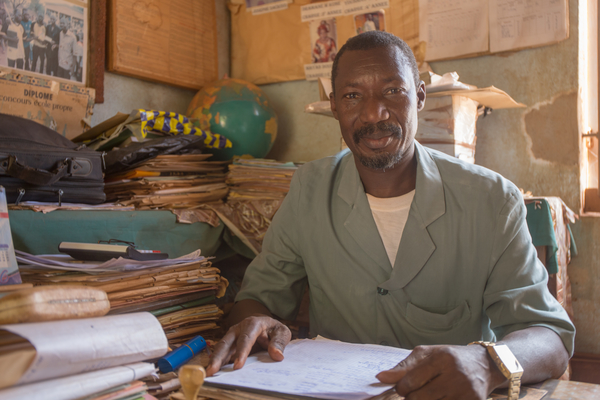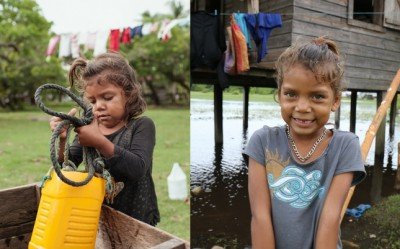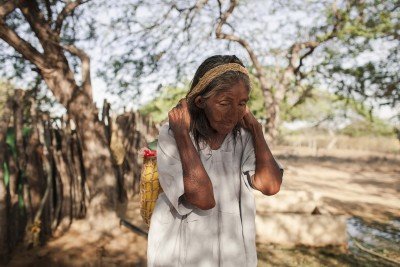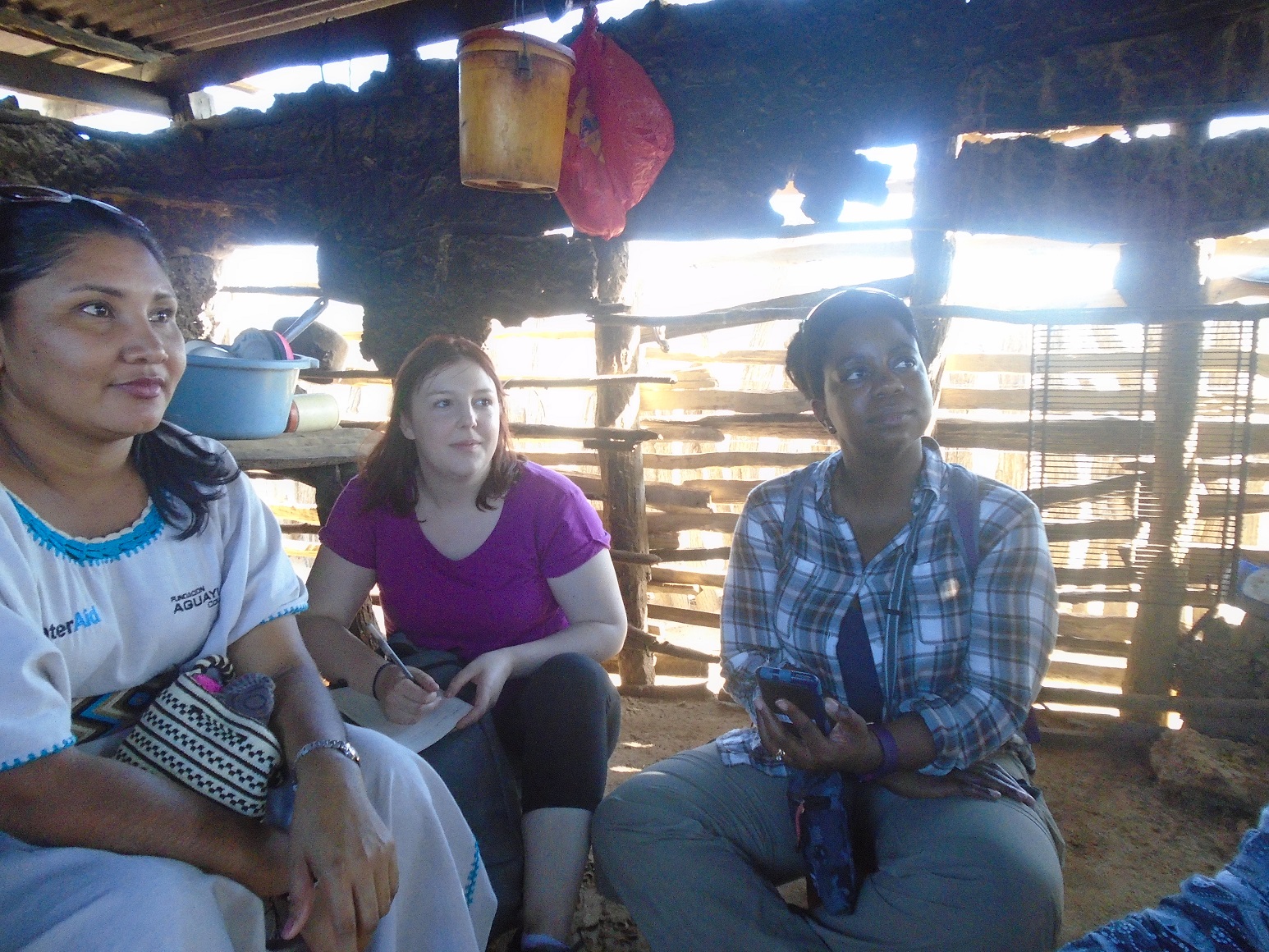Lamine Coulibaly

The Dialakorodji Public Primary School implemented a borehole, which is the only safe water point for the school. During the dry season, citizens have taken from the school’s borehole. Due to the school’s limited water supply, it not only affects class time but the overall upkeep of the premises. This is very frustrating for the school head Lamine Coulibaly, who has contacted the municipal authorities about the school’s water issues. WaterAid and the One Drop Foundation plan to use social art forms to raise awareness and mobilize communities to implement better sanitation and hygiene practices.
The following is an excerpt of Lamine Coulibaly’s story as told to WaterAid staff in November 2016.
The public elementary school of Dialakorodji covers an area of three hectares. Currently, we have 20 classrooms and four management offices. There are a total number of 2,054 pupils. From the beginning of the school in 1991 to this year (2016), a lot of the infrastructure has been built with the support of partners. But it is a very difficult site for water. The ground is rocky and we can’t dig the traditional wells. During the rainy season, you find that all Dialakorodji has water but when the dry season starts, it becomes difficult to find water. Initially, in our school, we started collecting water with impluviums (rainwater harvesting technology). During the rainy season, we collected water from the roofs and stored it to be treated and used later. Then, with the support of partners like UNICEF, we got a borehole. This borehole is the only safe water point for pupils, teachers and often for the population around the school. During the period of scorching heat, in March and April, people invade the school’s borehole to get water. We have often approached the municipal authorities about this water problem.
With just this water point in the school, we are facing many challenges. As I said, there are 2,054 pupils without counting the teachers. How can 2,054 pupils use just this water point to satisfy their needs and be on time to class? It’s a handpump with only one spout. Not many people can collect water at the same time. So it takes time to pump and get water. And you have to collect water to clean the latrines, to drink, to water the flowers, to wash your hands and feet etc. So you see how it’s difficult to deal with one borehole? This disturbs our work and the timetable of the pupils here. Sometimes, our pupils hurt their fingers while using the hand pump. The children like playing and they don’t pay attention while pumping. Bad use of the hand pump by children already caused many injuries. We need to find a solution to that problem. With the municipal authorities, we often talk about the need to install a water tower. As we have electricity, it’s possible to install a water tower with many water spouts. We have asked for this but not yet got it.
We currently have 33 latrines divided into different blocks of three, five or six stalls. What poses a problem is their maintenance because there is not enough water. With UNICEF and now with AMASBIF, we received some hygiene kits – specifically handwashing devices. But the use of all these materials depends on the availability of water. There is a water point but the delivery of water is not satisfying. We need to improve water delivery in our school in order to practice good sanitation and hygiene. We also need to work out how to close the school area, because we are near a main road. There is dust and the wind carries plastic bags into the school area.
Thanks to the project we set up a hygiene club in the school made up of members of the different cycles of the school, (the 1st cycle A, the 1st cycle B, the second cycle A and the second cycle B), in order to clean and maintain the school area (schoolyard) and its infrastructure (classrooms, toilets and borehole). Some teachers run the training of this club. Each Friday afternoon is for cleaning. The hygiene club mobilizes pupils for these cleaning activities and supports the project work with AMASBIF and WaterAid. We really appreciate what the JI-NI Beseya project has started doing here. WASH is important because it brings cleanliness and health. We thank the project supporters and partners who decided to help us improve the WASH situation in our school.”
Photo credit: WaterAid/Basile Ouedraogo






